How to Properly Install Soundproofing in an Apartment
When noise from neighbors prevents you from living peacefully, soundproofing becomes necessary. First, find out what types and nuances exist for this type of work.
Olga Dukven, expert, interior designer and studio manager at "Domostroy"
Types of soundproofing
- Local — eliminates sounds from a neighbor's TV behind the wall.
- Complete — muffles loud footsteps, sounds of moving furniture or a drill.
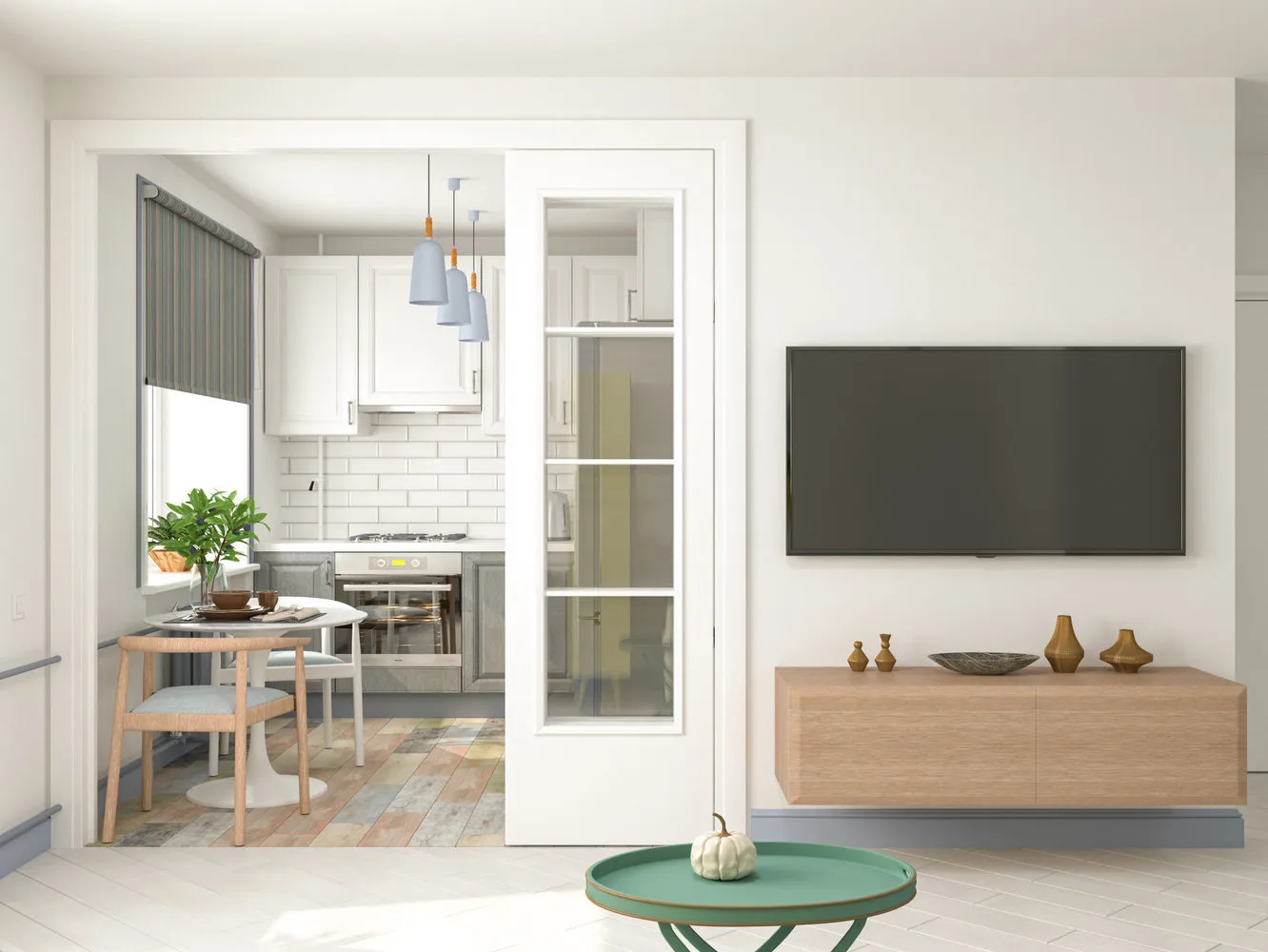
Design: Irina Krivtsova
Soundproofing the Floor
Laying insulation is the simplest and most effective method. Usually, 150 kg/m² density insulation is used.
Before laying, the floor surface is prepared: it must be flat, without cracks, dents, or unevenness. Insulation is laid on the floor in a continuous pattern, cut into strips 10–15 cm high and placed along the room perimeter. The insulation must fit tightly against the walls without gaps.
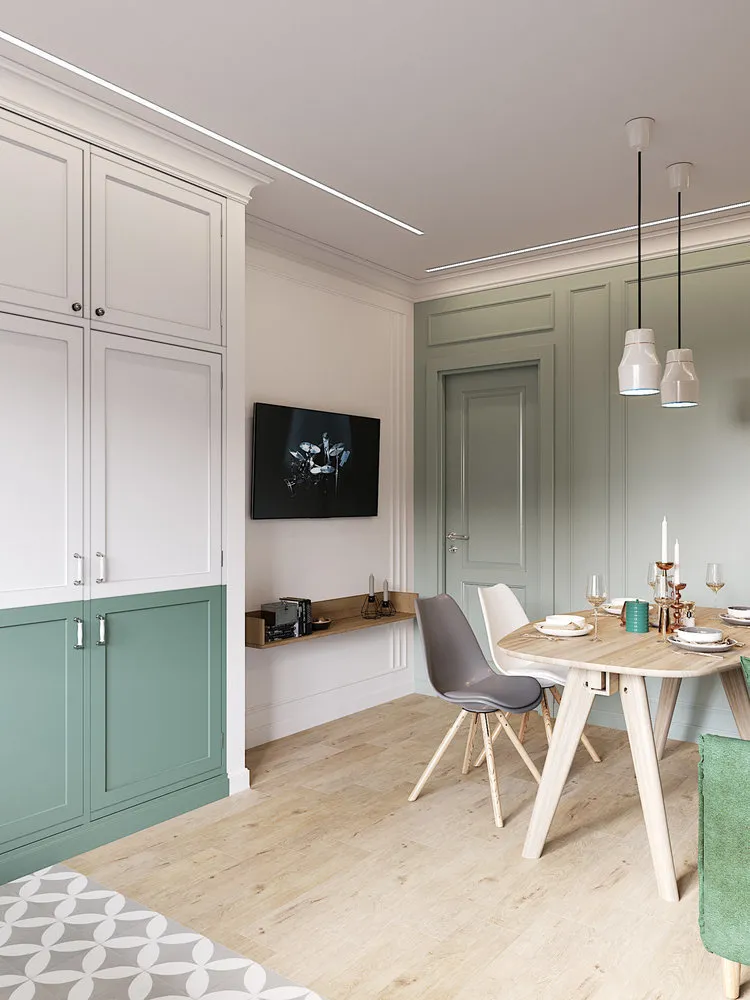
Design: Cartelle Design
After laying the insulation, a gypsum board or plywood covering is installed or a reinforced screed with a minimum thickness of 7 cm is made. This construction is called "floating" — the floor is isolated from walls and slabs. Therefore, it will muffle sounds that typically spread throughout the building. The plywood layer must be at least 18 mm thick, otherwise, the floor will sag.
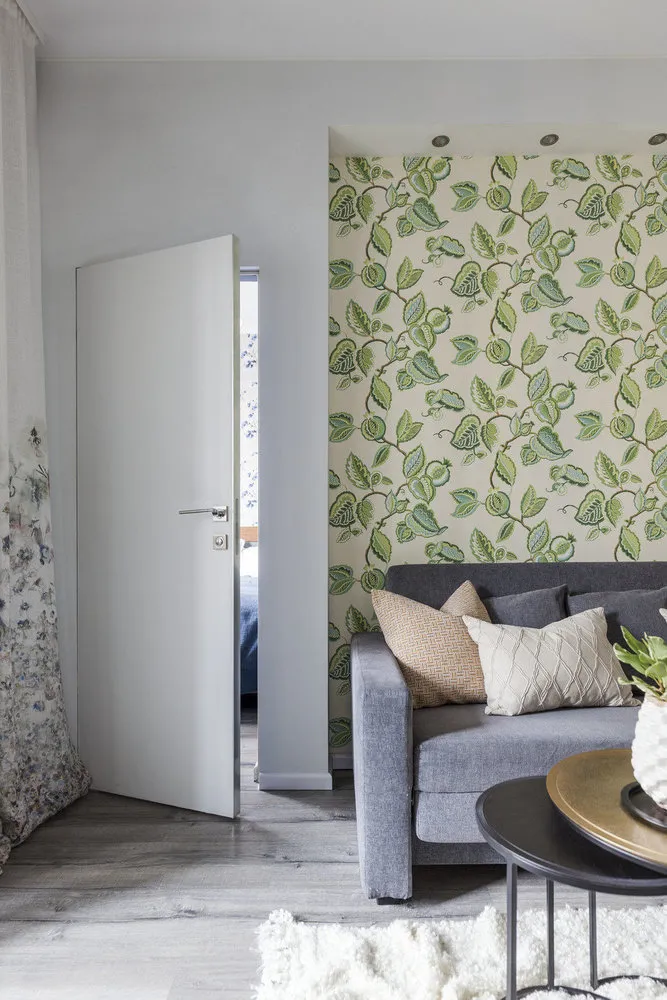
Design: Julia Beliayeva
What materials can be used for such a floor?
Any — parquet, laminate, tiles. But the best solution is vibration-damping materials based on polyurethane. They perfectly solve the issue of structural noise transmission from the building to the floor, but they are expensive — about 15–20 thousand rubles per square meter.
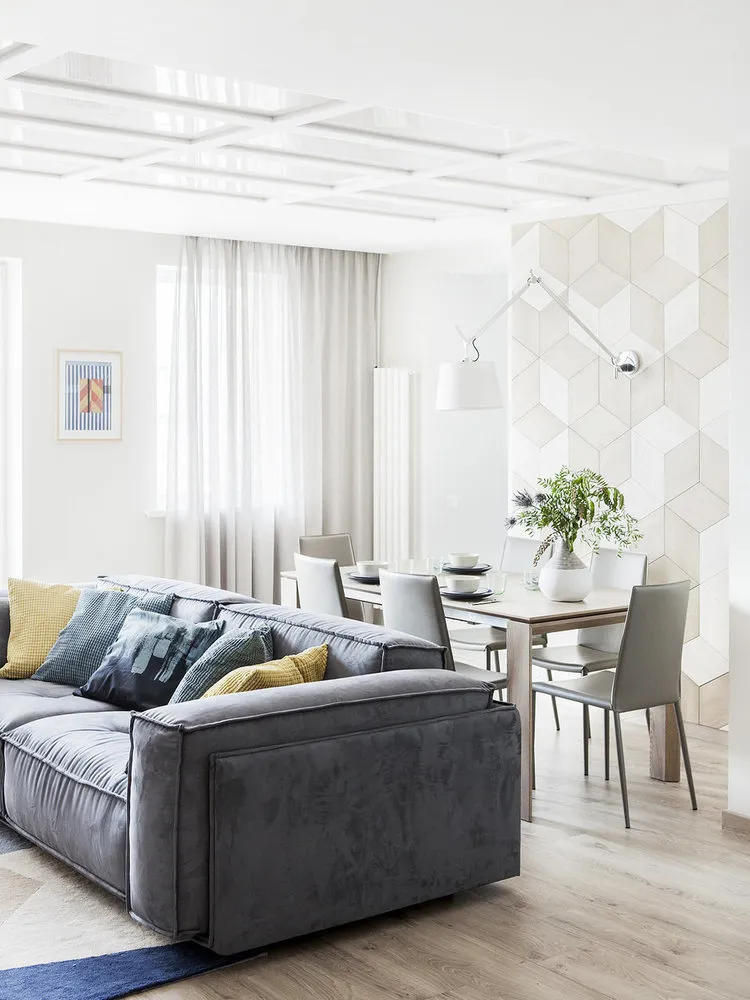
Design: Ekaterina Savkina
Soundproofing Walls
Partitions are assembled from gypsum board in two layers on profiles. Each wall must be independent — it should be isolated from the other wall by a separating layer, such as a damping tape.
The tape is laid under the entire guide profile — on the floor and ceiling. This method eliminates vibrations that are transmitted to the frame and then to the walls.
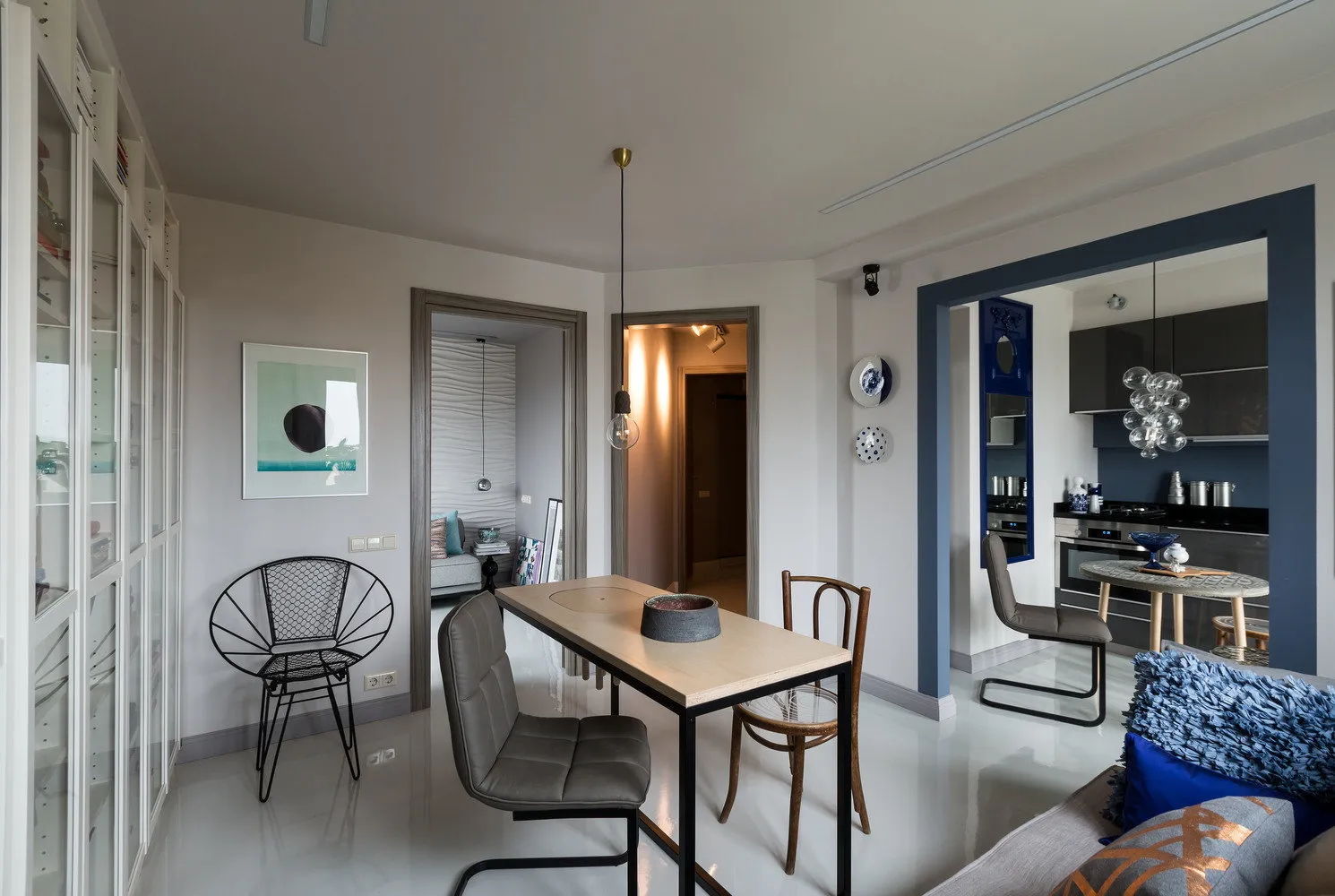
Design: Irina Krasheninnikova
How to Increase Wall and Partition Soundproofing?
- With Vibration Suspension — suspensions with a layer of ordinary rubber or polyurethane material. They dampen impact noise that travels through enclosing structures but does not transmit to the frame.
- With Insulation at a density of 35–60 kg/m². Insulation fills gaps between gypsum board and enclosing structures. If the covering is thin, cut the insulation into narrow strips.
How to Choose Insulation?
Specialists use certified new-generation insulation made from environmentally friendly materials, with starch used as a binding agent.
Often, dense insulation designed for industrial spaces is also used for apartment soundproofing. However, it should not be used in apartments: formaldehyde-based resins are often used as binding fibers, which can cause health problems.
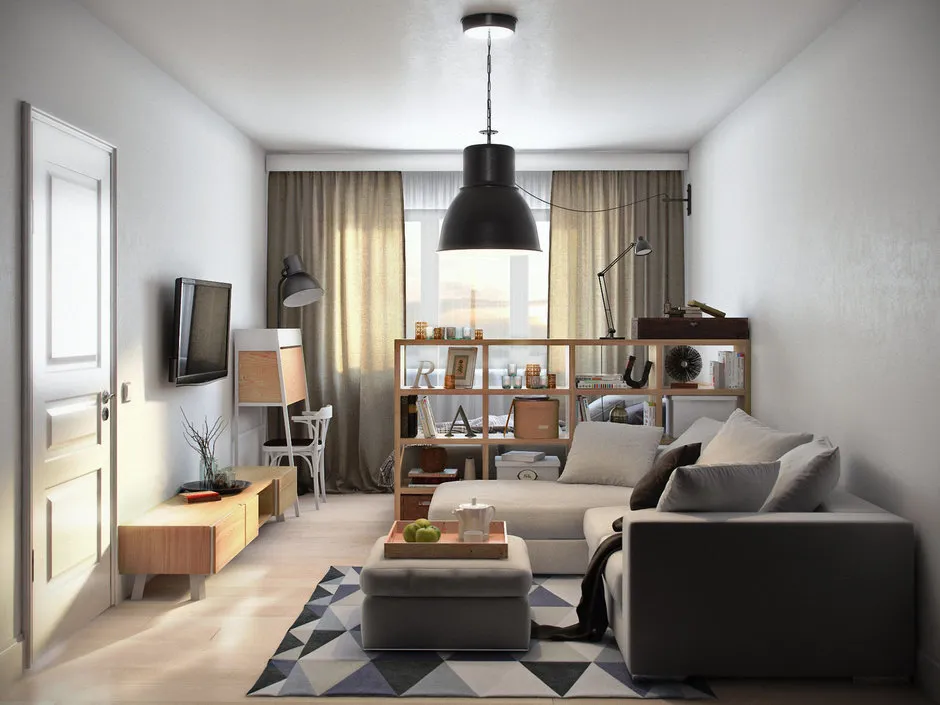
Design: Nikita Zub
Soundproofing the Ceiling
If you build the ceiling after partitions and wall finishing, choose a suspended option. In this case, the profile is not mounted to enclosing structures but has a separating tape and damping installed. As a result, the ceiling will move together with the slab.
If your neighbors above have not installed soundproofing on their floor, it will be difficult to eliminate all impact noise — even if your ceiling has perfect soundproofing. However, the effect of soundproofing will still be noticeable.
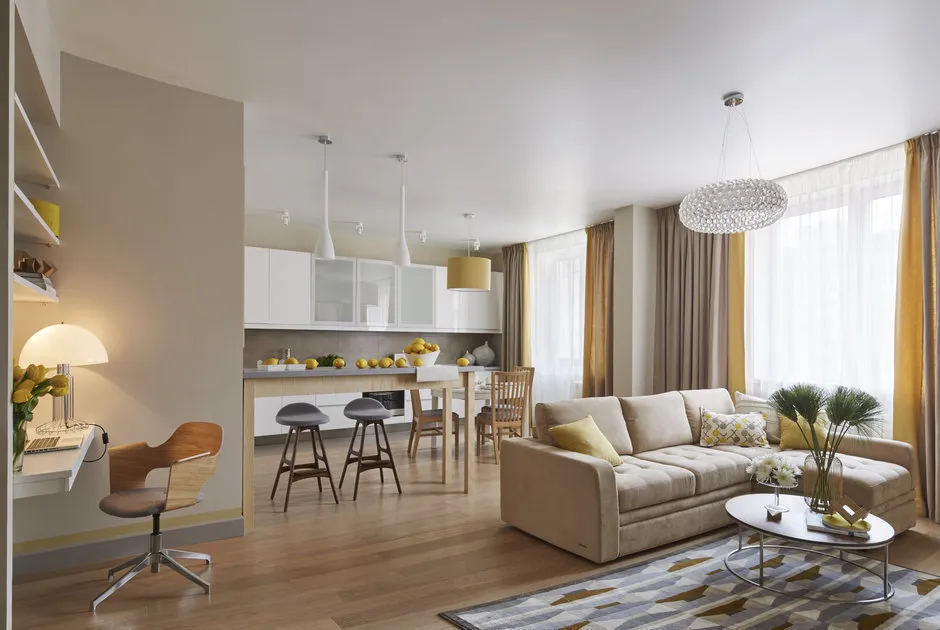
Design: Bon Home Design
The Main Mistake in Ceiling Soundproofing — Through Holes
They may appear during installation of recessed lights or outlet boxes. Sound, once entering the space between the wall and gypsum board, bounces off the covering and is absorbed in the insulation. With through holes, sound partially penetrates into the room.
To eliminate these holes, cover the problematic areas with gypsum board.
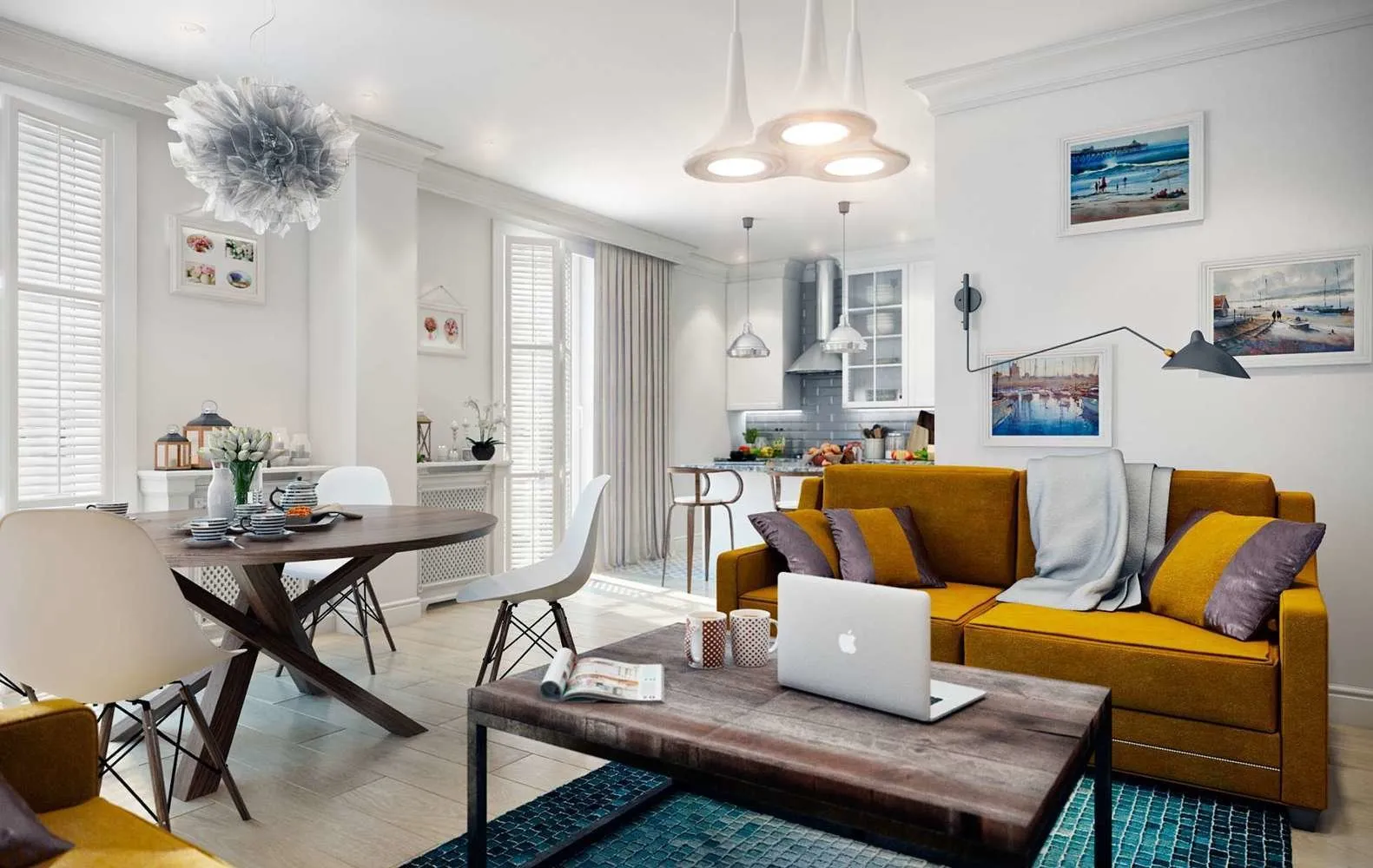
Design: Co:Interior
What Is Professional Soundproofing?
All the work we discussed above can be done by any renovation crew. However, not every specialist will take on professional soundproofing of a room. Moreover, its cost and material purchase will be several times higher.
Although the essence of execution is the same: specialists decouple the finish from enclosing structures, fill with insulation, and cover with selected boards. The fewer connections between internal finishes and external or enclosing structures — the better. The ideal solution is to build a "room inside a room" and suspend it on flexible connections and vibration pads.
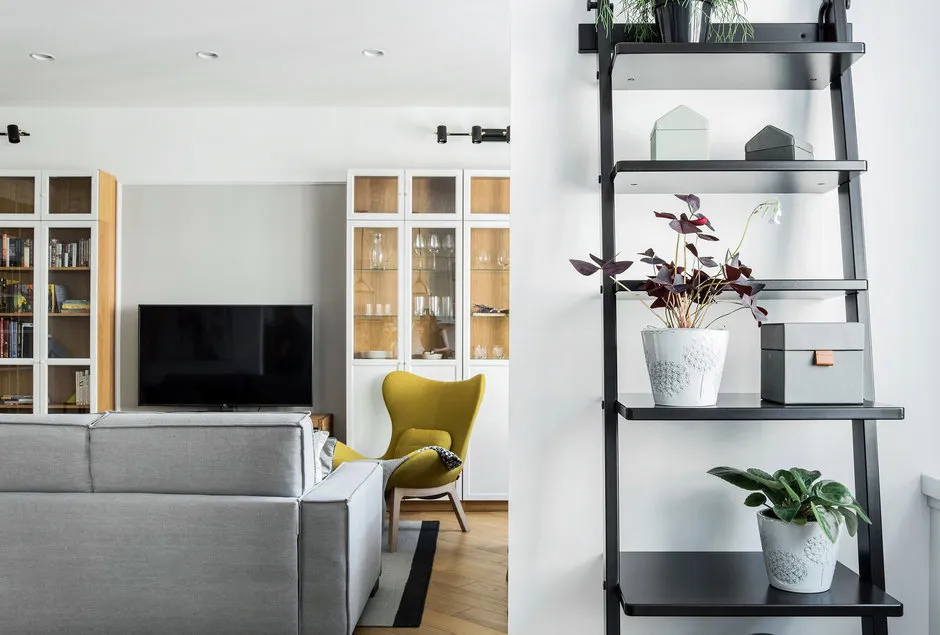
Design: Boho Studio
This result is achieved using hydro-insulation sheet materials. For example, polyurethane foam of various densities. They are cut into strips and laid under the floor joist system. Gaps between joists are filled with insulation and covered with sheet materials. In the end, the floor is not connected to slabs and lies on vibration pads that dampen all noise.
For wall and ceiling finishing, rigid mounting systems are used that do not require the use of hangers or vibration mounts. Because even the most expensive vibration mount transmits impact noise to the frame, albeit to a lesser extent.
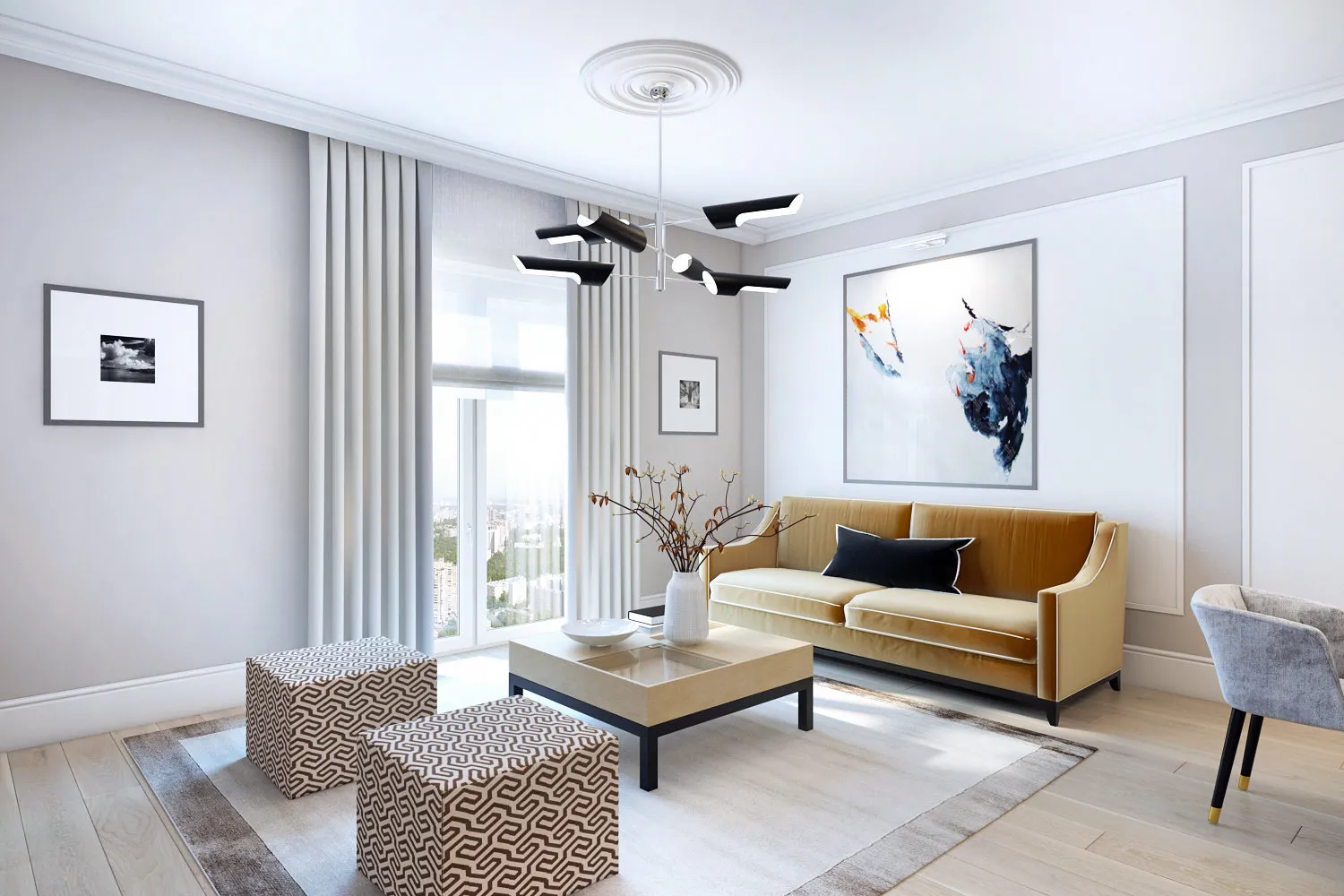
Design: Dina Salakhova
Need a renovation specialist?
Find verified professionals for any repair or construction job. Post your request and get offers from local experts.
You may also like
More articles:
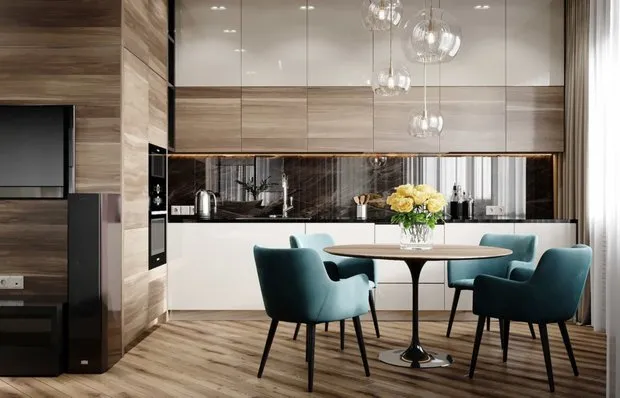 Kitchen Design: 6 Solutions to Avoid
Kitchen Design: 6 Solutions to Avoid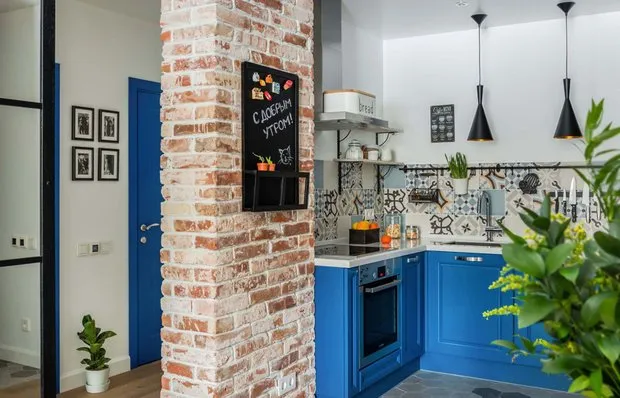 How to Organize a Kitchen in the Hallway?
How to Organize a Kitchen in the Hallway?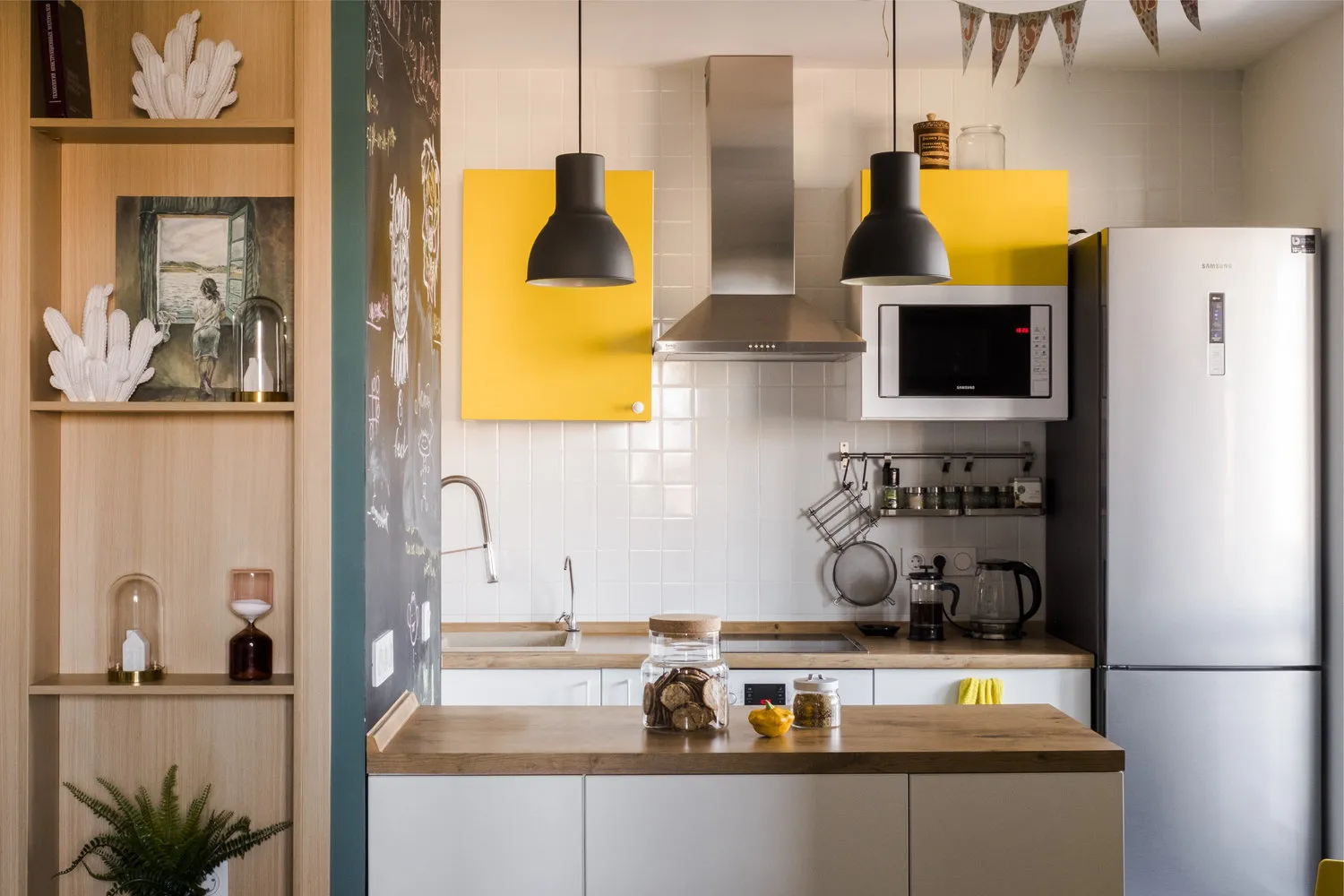 How to Do a Renovation with a Limited Budget: 7 Examples
How to Do a Renovation with a Limited Budget: 7 Examples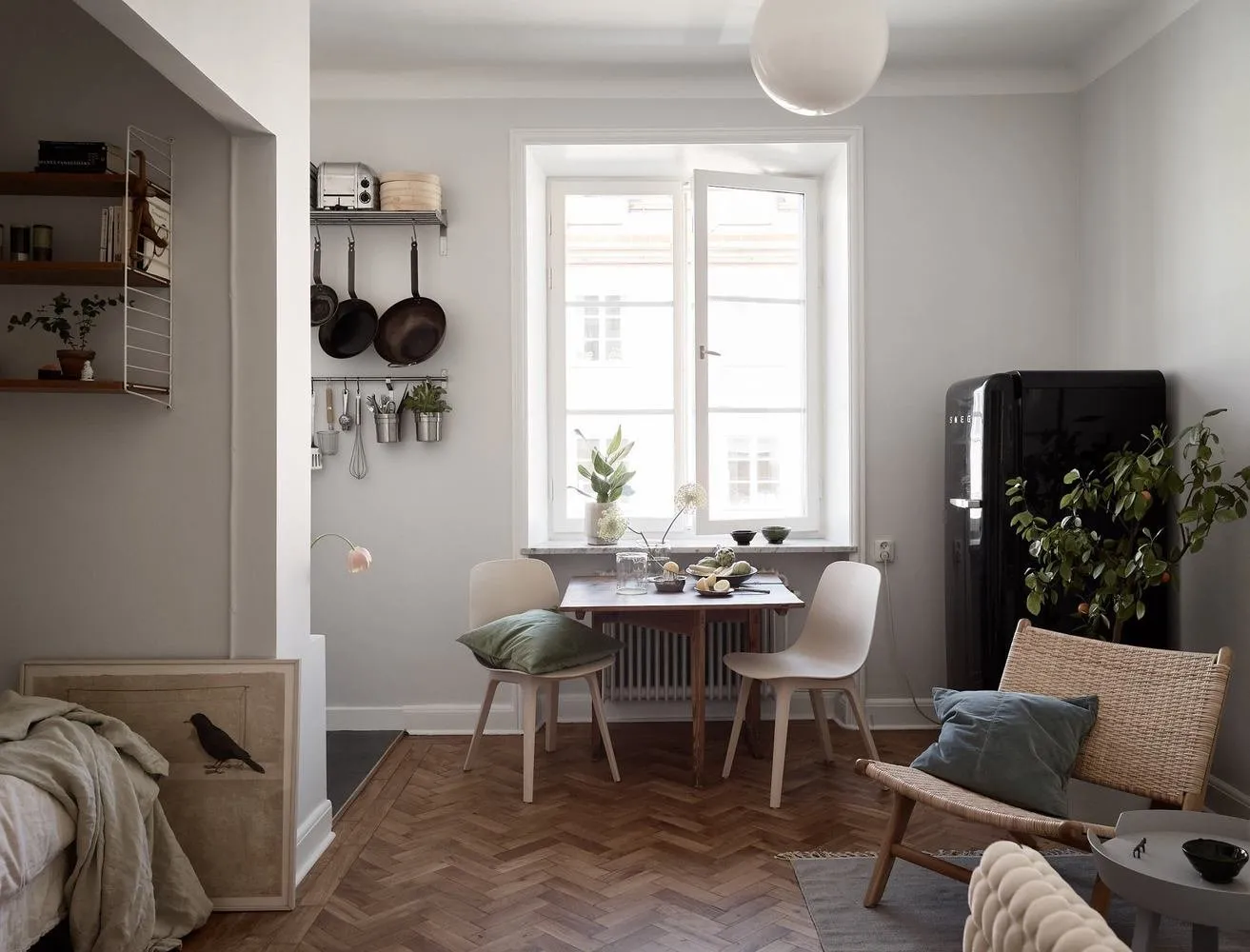 Small Apartment with Proper Zoning
Small Apartment with Proper Zoning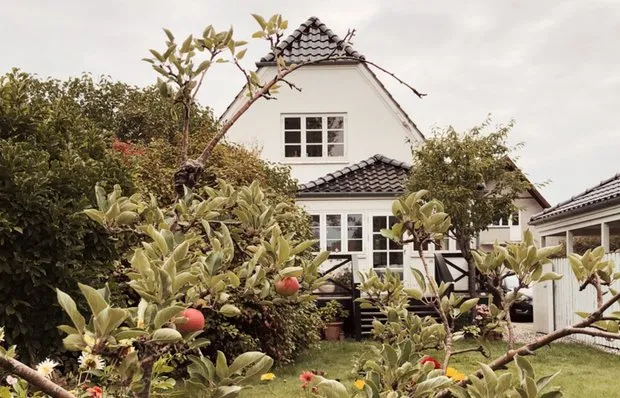 Visiting a Danish Blogger: Cozy House with Winter Garden
Visiting a Danish Blogger: Cozy House with Winter Garden How to Decorate Your Home for New Year: 10 Cool DIY Ideas
How to Decorate Your Home for New Year: 10 Cool DIY Ideas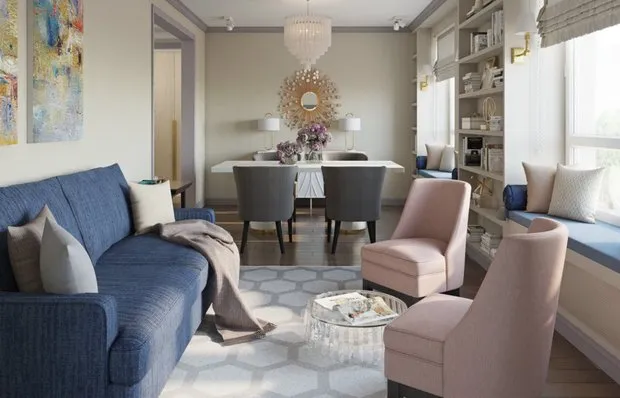 How to Add Neoclassical Elements to a Modern Interior?
How to Add Neoclassical Elements to a Modern Interior?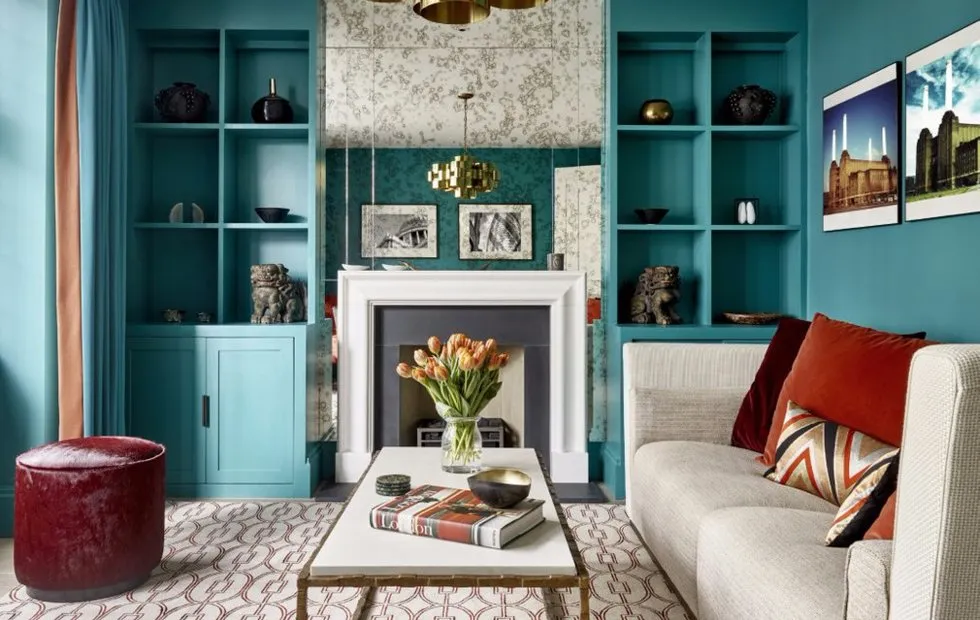 How to Decorate an Interior with a Fireplace: Pro Idea
How to Decorate an Interior with a Fireplace: Pro Idea